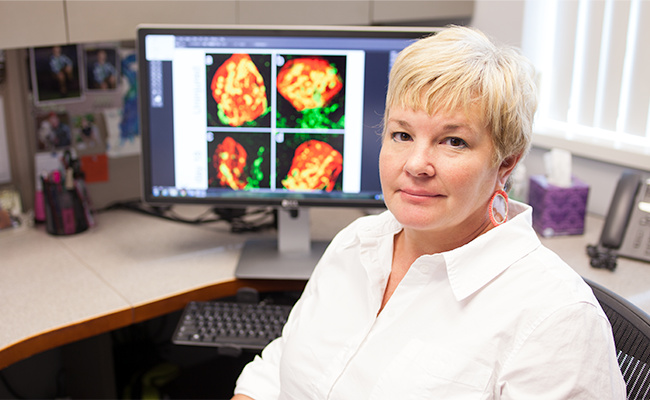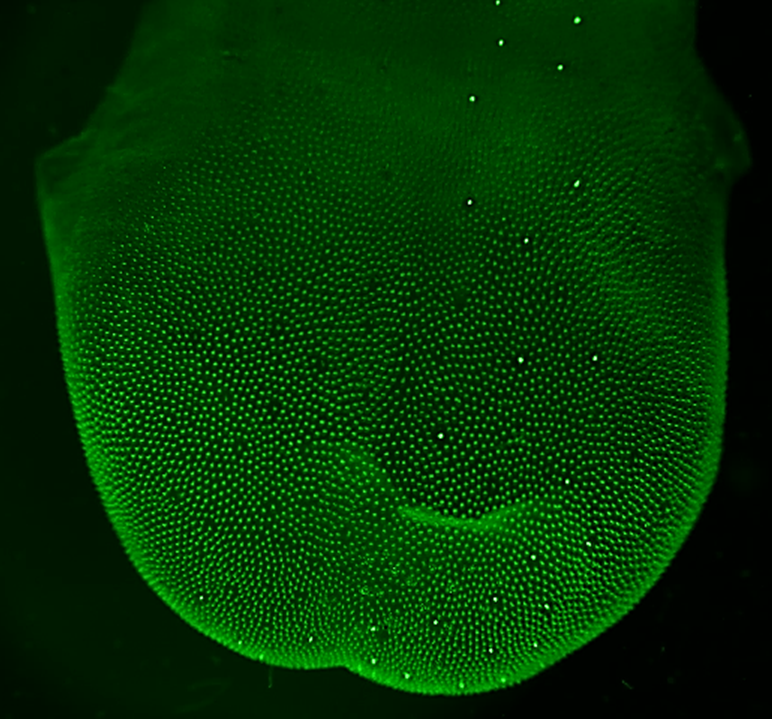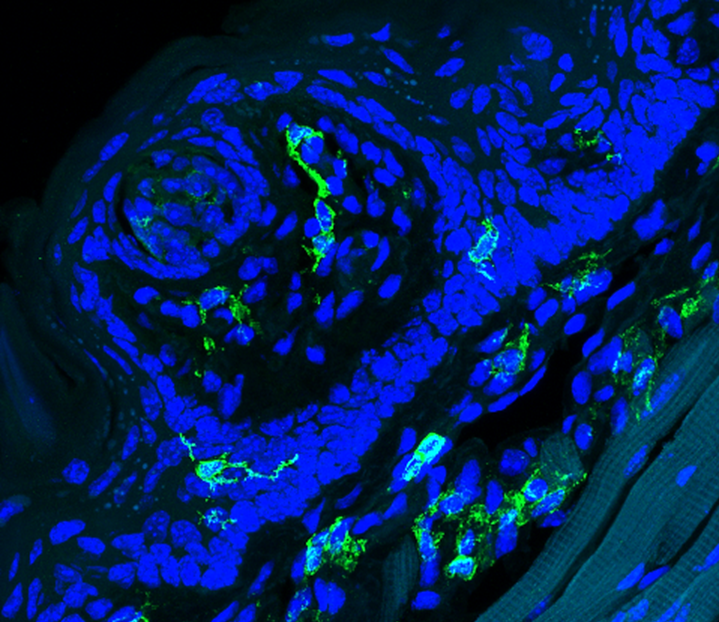Lynnette McCluskey, PhD - Lab
Professor,
Dept. of Neuroscience & Regenerative Medicine
Mailing Address:
Dept. of Neuroscience & Regenerative Medicine
1120 15th Street, Rm. CA3016
Medical College of Georgia at Augusta University
Augusta, GA 30912
Office phone: 706-721-5616
E-mail: lmccluskey@augusta.edu

Jump to: Research Interests Current Projects Open Positions Recent Publications
Research Interests
The sense of taste is important for nutrition and quality of life, but millions of people live with taste deficits due to infection, injury or cancer treatments.
The McCluskey Lab aims to understand immune mechanisms underlying taste loss and recovery. We use a combination of genetic mouse models, in vivo taste nerve recording, confocal imaging, and molecular / immunologic techniques to determine how to regenerate taste buds and restore taste function.
Current Projects
- Injury-induced mechanisms of taste bud regeneration.
R01DC021701-01 NIDCD
We are genetically manipulating interleukin (IL-1) and tumor necrosis factor (TNF)-α signaling in specific cell types to promote taste bud regeneration and the recovery of taste function after injury.
- ACE2 in the healthy and inflamed taste system.
R21DC019832-01 NIDCD
We use novel mouse models to map ACE2-expressing cells in the taste system with high sensitivity and determine the receptor’s role in taste function under normal and inflammatory conditions.


Open Positions
We currently have positions available:
- Research Track Faculty position: Assistant Research Scientist (Job ID 271799)
- Postdoctoral Researcher (Job ID 270926)
- Senior Research Associate (Job ID 270914)
The McCluskey team offers ongoing career support, the potential for promotion, and opportunities for researchers from diverse backgrounds. Join a collaborative NIH-funded group and gain skills in functional nerve recordings and high-level confocal imaging. We are looking for applicants with in vivo mouse experience and will train in relevant techniques.
The McCluskey Lab is housed in the Dept. of Neuroscience and Regenerative Medicine at the Medical College of Georgia in Augusta, GA. The department has recently recruited new faculty clustered in neurodegeneration and invested in cutting-edge technologies. Augusta is affordable, offers year-round outdoor activities, and is centrally located within 2-3 hours from the mountains, coast, and Atlanta.
Recent Publications
Dong G, Kogan S, Venugopal N, Chang E, He L, Faal F, Shi Y and LP McCluskey (2023) Interleukin (IL)-1 receptor signaling is required for complete taste bud regeneration
and the recovery of neural taste responses following axotomy. J Neurosci 43(19): 3439-3455. *Featured article selected by Editors
Dong G, Boothe K, He L, Shi Y and LP McCluskey (2023) Altered peripheral taste function in a mouse model of inflammatory bowel disease. Sci Rep 13(1):18895.
Heisey EM and LP McCluskey (2023) A possible role for taste receptor cells in surveying the oral microbiome. PLOS Biol 21 (1): e3001953.
Lakshmanan HG, Miller E, White-Canale A and LP McCluskey (2022) Immune responses in the injured olfactory and taste systems: a role in olfactory receptor
neuron and taste bud regeneration? Chem Senses 47.
Pittman DW, G Dong, AM. Brantly, L He, TS. Nelson, S Kogan, J Powell and LP McCluskey (2020) Behavioral and neurophysiological taste responses to sweet and salt are diminished in a model of subclinical intestinal inflammation. Sci Rep 10(1): 17611.